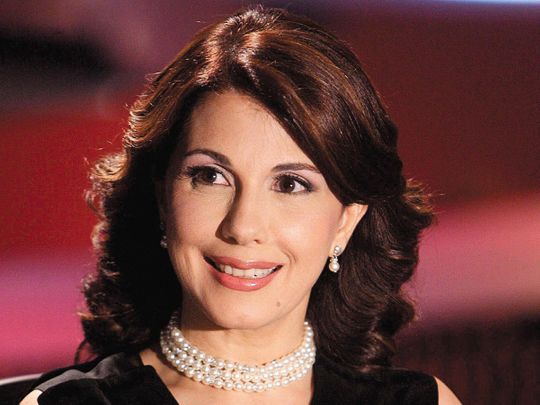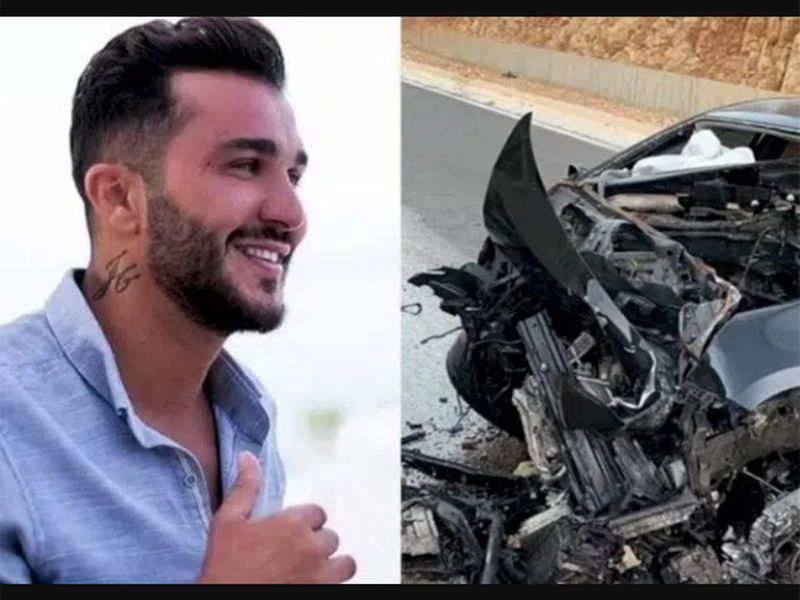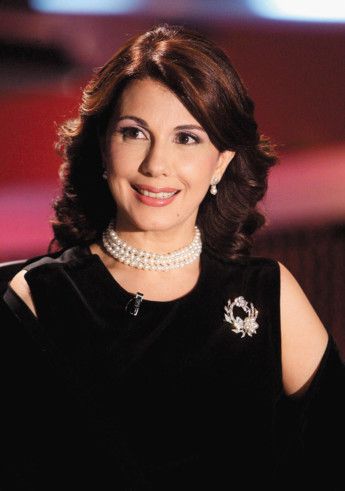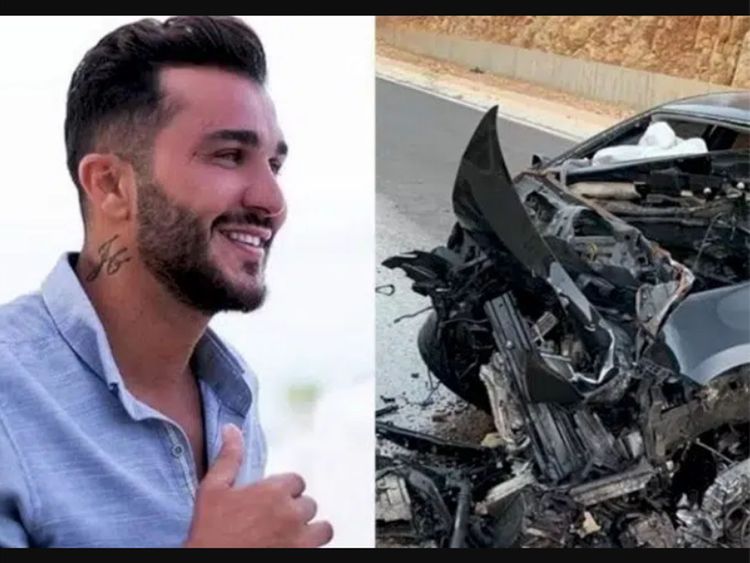
Beirut: Lebanese diva Majida Al Roumi has announced that she will cover all expenses for rehabilitation of a short segment of the Damascus-Beirut Highway, from the Syrian borders to the Lebanese town of Anjar in the Bekaa Valley.
Her initiative comes less than one month after a fatal car accident took the life of her colleague George Al Rasi, who when returning from a concert in Syria on August 27, crashed into an un-lit concrete barrier at the Lebanese borders, and died instantly.
Technically, those borders have been closed since outbreak of COVID-19 in 2020. Exceptions are made for travel and medical purposes, or for contracted work.
Al Rasi’s death was mourned by his fans, raising concerns about road safety in Lebanon. Fans rushed to the scene of the accident, and were shocked by the immediate response of Lebanese officialdom, whose only reaction was placing a plastic barrier facing the fork into which the car crashed, without adding any safety signs or electricity.
Shortage of funds
The Lebanese state is suffering from a chronic shortage of cash, topped with a steady meltdown of the banking sector, approaching its four-year next month. Lebanon had received a $11 billion grant of from international donors meeting in Paris back in April 2018, but that money was held back on conditions of serious reforms, like clipping the wings of Hezbollah, which neither President Michel Aoun was prepared to do, nor was his prime minister at the time, Sa’ad Hariri.
A more recent loan of $3 billion was preliminary approved by the International Monetary Fund (IMF) in April 2022, but it came with strings attached that the cabinet of Prime Minister Najib Mikati has been equally unable to address, like monitoring government spending, revamping the electricity sector, combating corruption in the public sector, permitting external evaluation of the country’s 14 banks, and introducing laws for capital control and banking secrecy.
Additionally, the loan was only a fraction from what Lebanon had originally asked the IMF: no less than $9-10 billion. According to the World Bank, fixing the damage to public property caused by the August 2020 explosion at the Beirut port will cost anywhere between $3.8-4.6 billion. The collapse of Lebanon’s banking sector has plunged 75 per cent of Lebanon’s six million residents into poverty. Thousands have had their dollar deposits locked by banks since 2019, triggering a handful of hold-ups over the past month, as people took to arms to reclaim their money.

Highway of Death
According to one of the taxi drivers who commute between the two countries daily, “George Al Rasi is not the first do die at this intersection. He won’t be the last. But the rest were not famous people. He is famous and that is why he got so much attention. It’s a dark and tricky part of the border. If one is not familiar with it, then an accident is very likely.
Not only did the concrete block has no reflective signs for traffic safety, the entire area was in darkness due to chronic electricity cuts in both Syria and Lebanon.
Majida Al Roumi has now added reflective lights, stop signs, and solar energy lights to the trickiest part of the border; a stretch of 200-meters. They were installed with the help of the Lebanese Army. The amount of Roumi’s grant was undisclosed to Lebanese media.
Two weeks ago, Roumi was seen at Rasi’s condolence service, clad in black, paying her respects to his sister, actress Nadine Al Rasi. On September 19, Nadine addressed Roumi via Twitter with a thank-you note on behalf of her family, saying: “A thousand salutes and gratitude to our dear sister Majida Al Roumi, and to the Lebanese Army. Brother: with your blood the Road of Death has become a Road of Crossing.”
Earlier, an offer to add electricity to the international highway was made by Saudi-based Syrian businessman Fouad Mohammad Nader. It was turned down by the Lebanese state, he said, because of what they claimed, were old rivalries between him and the Lebanese contractor who was originally commissioned to prepare the road.














